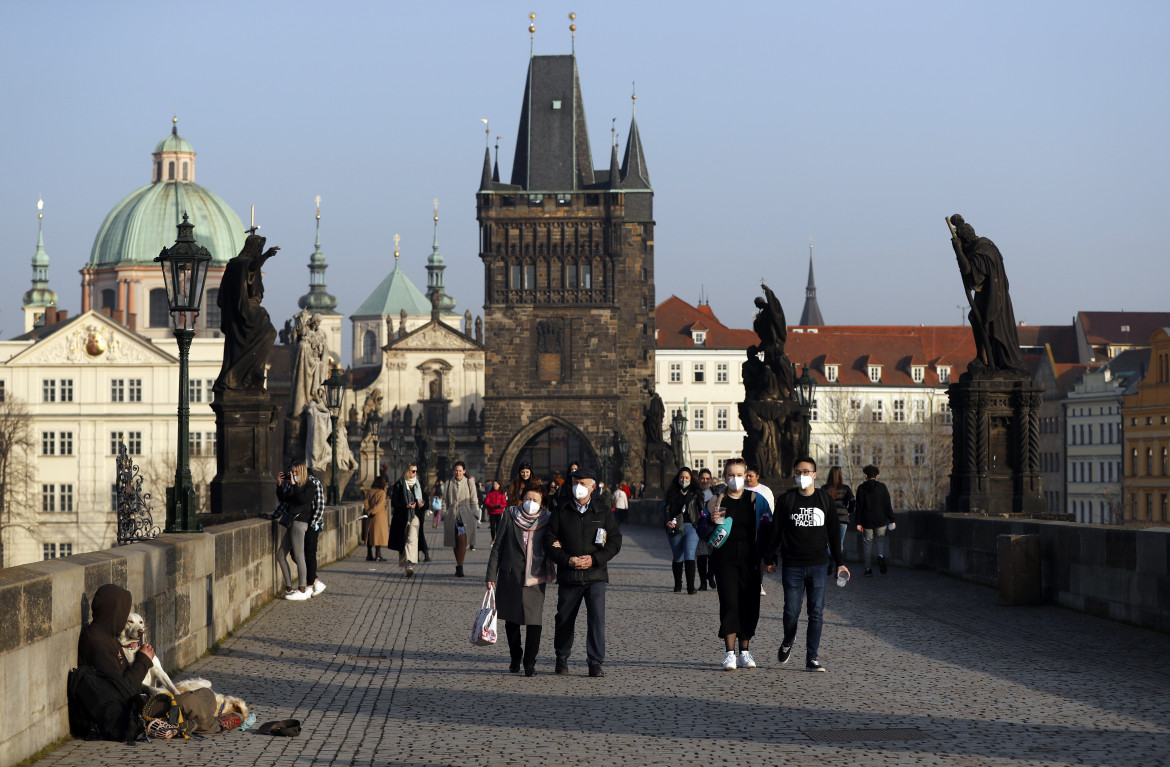Analysis
Czech Republic is in lockdown, but factory workers still have to show up
Instead of the closure, the government has introduced the obligation to wear a mask in the workplace and intends, in the coming weeks, to make screening mandatory in companies.

On Monday, the Czech Republic entered the hardest lockdown since the beginning of the pandemic. For at least three weeks, Czechs cannot leave their province of residence except for the purpose of work, health care or childcare. Schools of all levels have closed their doors and the only shops remaining open are food stores.
At least since November, the Czech Republic has been at the top of the rank of European countries with the most new infections in relation to the population. The country went through the first wave of the pandemic very well but in autumn it turned into the sick heart of Europe. The situation has worsened in the last few weeks with the spread of the new variations. “If the new rules are not respected, the world will see a Bergamo in Bohemia,” Prime Minister Andrej Babiš said on Friday evening, when the new restrictions were announced.
Since the end of January, Czech healthcare has been on the verge of collapse. The health system has a very robust structure inherited from the socialist system and modernized in recent years by European funding. What is missing is not so much beds and ventilators but doctors and especially nurses. The situation has improved with vaccination which has led to a decline of infections among health workers.
In the rest of the population, due to the low number doses available, the virus continues to circulate at great speed. For this reason the government is considering, in the wake of the Hungarian experience, purchasing the Russian vaccine Sputnik V independently. A proposal of this kind would have come from the Kremlin to the Czech president Miloš Zeman.
Since October, the Czech Republic was in a semi-hard lockdown, corresponding to the Italian orange zone, but “the measures we have taken have stopped working,” health minister Jan Blatný admitted at the beginning of February. This is demonstrated by the approach taken by neighboring countries, which gradually closed their borders. The strongest measure was taken by Germany, which effectively banned entry into its territory except for freight transport and commuters employed in critical sectors, arousing the ire of Brussels.
Until now, the government has avoided restricting industry. “The government has preferred economic interests to people’s health,” said the general secretary of the main Czech trade union confederation Josef Stredula after the new measures were published. The unions had previously stressed the need to limit activities in the factories, drawing the arrows of the industrialists. In favor of the limitations in the industry, albeit timidly, are the Social Democrats, who in the government must convince the premier, who is decidedly opposed.
According to the industrialists, the limitations would make it difficult for Czech companies, which often supply components to final production in the west.
Instead of the closure, the government has introduced the obligation to wear a mask in the workplace and intends, in the coming weeks, to make screening mandatory in companies. But it is not clear who will control these new regulations, especially in the workplace without a strong trade union presence.
In recent weeks the government is in a nervous breakdown. The executive, which is a minority, has complicated relations with external partners, Communists, who have complained about the failure to reopen the schools and ski slopes, and is under fire from the opposition, which criticizes their communication and approach to measures. In mid-February the opposition parties rejected the extension of the state of emergency requested by the government, but then the presidents of the regions, mostly members of those same opposition parties, asked for it to be reintroduced.
The deterioration of the Czech political scene was clearly visible on Friday, when a vote was taken to change a law that would have increased the allowance of people in quarantine. On paper, almost all the parties were in favor of the measure, which in the end did not pass due to lack of votes.
The opposition abstained due to some formal flaws, and the majority missed some votes attracted by the declarations of the business associations, according to which the increased allowance would have been like a bonus for staying at home. Yet the measure was very important: Czechs no longer report contacts for tracking so as not to put their colleagues or loved ones in financial difficulties.
The pandemic has put prime minister and oligarch Babiš in great difficulty. For the first time in six years he is seeing support drop significantly. But despite everything, the opposition is not clamoring for the end of the government and the premier. Evidently they hope that in October, when the parliamentary elections will take place, the storm will have already passed.
Originally published at https://ilmanifesto.it/repubblica-ceca-in-lockdown-ma-nel-cuore-malato-deuropa-le-fabbriche-non-devono-chiudere/ on 2021-03-03
